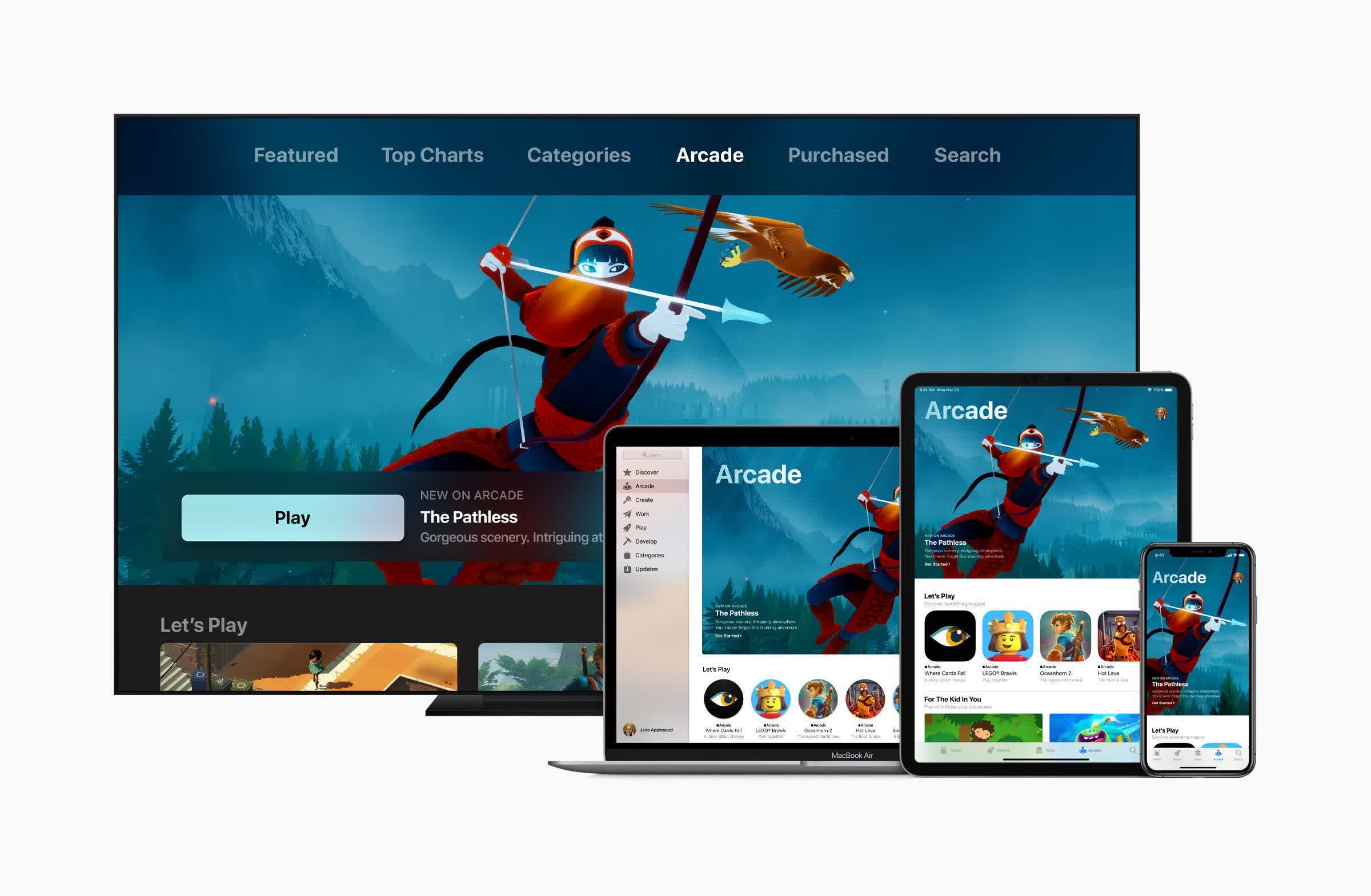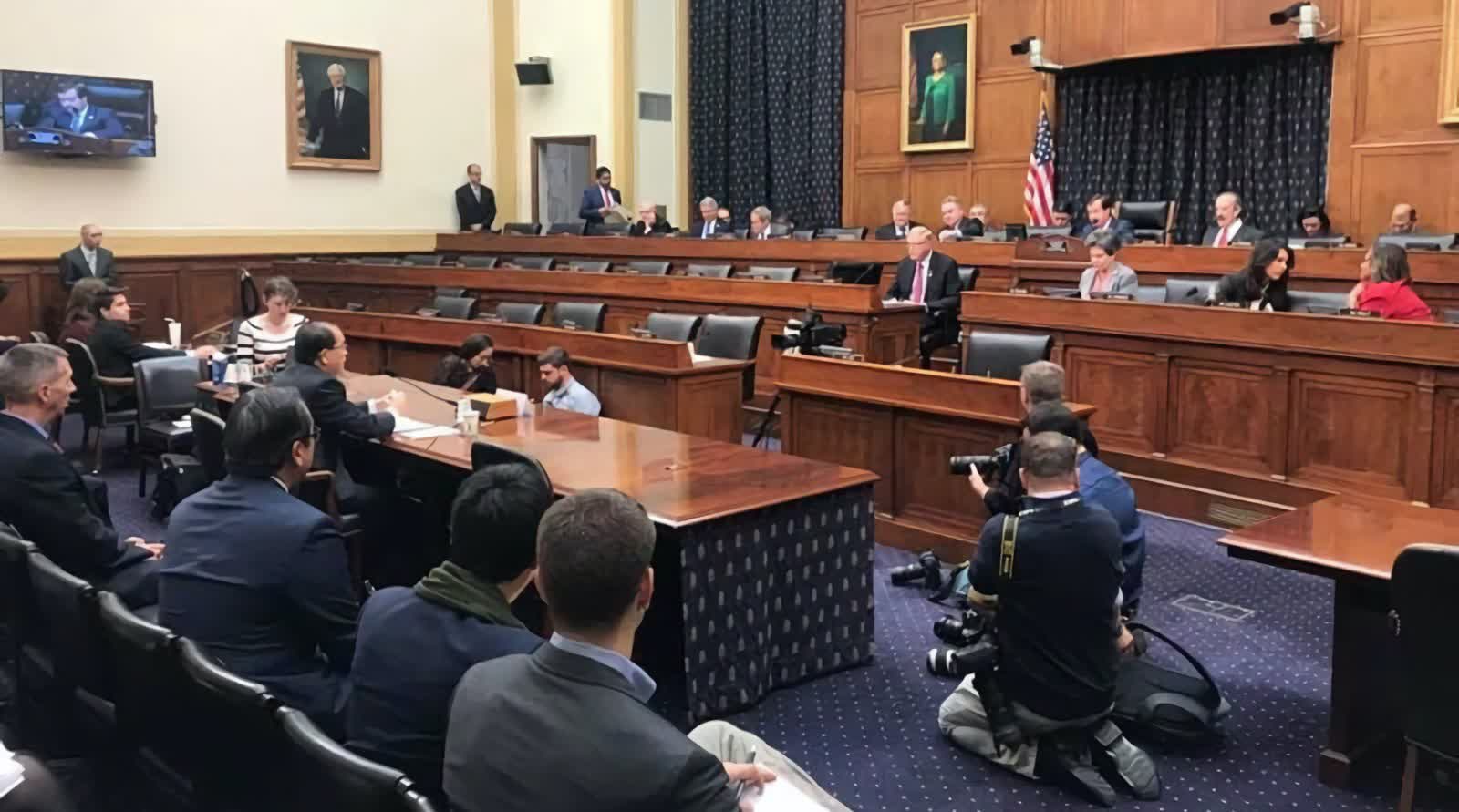A hot potato: A former Apple executive says the Cupertino tech giant uses its "arbitrary" App Store policies "as a weapon" to restrict competition. He points to Apple Arcade as just one example of how the company allows its own subscription services while denying similar models like Xbox Game Pass.
Apple has maintained that its restrictive rules denying Xbox Game Pass and Google Stadia entry to the App Store are meant to protect its users. However, testimony from former App Store director Phil Shoemaker begs to differ.
According to a 449-page report from the House antitrust subcommittee, Showmaker said that apps similar to Apple Arcade are "consistently disallowed from the store" for violation of App Store guidelines even though Arcade violates those same guidelines.
Apple Arcade is a subscription service that gives users instant access to hundreds of games for one monthly fee. It is the almost the same business model as Game Pass and Stadia, albeit without the streaming aspect. Yet those platforms are not allowed. According to Apple, they are permitted, but the hoops these services have to jump through to get approved are cumbersome to the point that it makes getting them on the store impractical at best and impossible at worst.

Apple says that it would allow Stadia and Game Pass as long as each game offered is submitted for approval separately and that all of them use Apple's in-app payment system for purchases. Having to submit games individually is not only a hugely inefficient process, it defeats the purpose of the game streaming model. It is easy to see the mountains red tape created by these rules, which is why Shoemaker testified that the guidelines are used "as a weapon against competitors."
Apple issued a statement to Business Insider disagreeing with the House's findings and says it has done nothing but help third-party developers make money.
"We have always said that scrutiny is reasonable and appropriate, but we vehemently disagree with the conclusions reached in this staff report with respect to Apple," a spokesperson said. "Our company does not have a dominant market share in any category where we do business ... The App Store has enabled new markets, new services, and new products that were unimaginable a dozen years ago, and developers have been [the] primary beneficiaries of this ecosystem. Last year in the United States alone, the App Store facilitated $138 billion in commerce with over 85% of that amount accruing solely to third-party developers."
Detractors to Apple's policies, such as Epic Games, which is currently embroiled in a legal battle with Apple over the matter, sometimes cite the company's seemingly hypocritical allowance of similar services like Spotify and Netflix. Apple contends that the comparison is apples and oranges.
"The difference boils down to the medium," Apple told BI. "Games are interactive, unlike music and film, and there are consumer expectations baked into the App Store related to gaming."
Payment through Apple's built-in in-app system and App Store ratings are just a couple of many services that Apple says its customers expect.
Microsoft believes these are just excuses. It criticized Apple's rules last month saying they create "a bad experience for customers." In what seemed to be another jab at its rival, Microsoft laid out 10 new guidelines (principles) for its store that allow just about everything that Apple does not.
"[Our principles], building on the ideas and work of the Coalition for App Fairness, promote choice, ensure fairness and promote innovation," the company said.
Apple says it plans to fight back against the House's conclusions.
